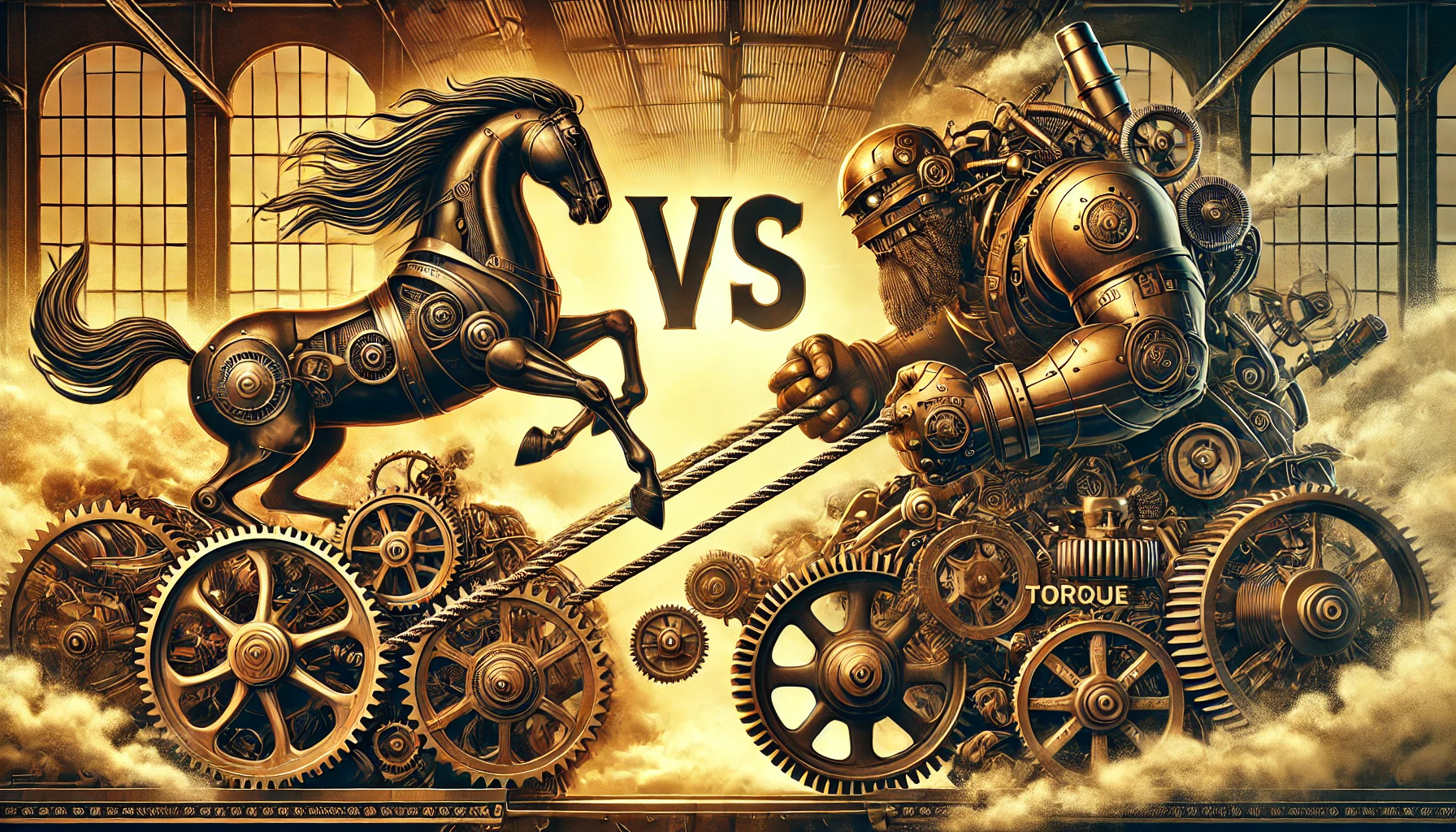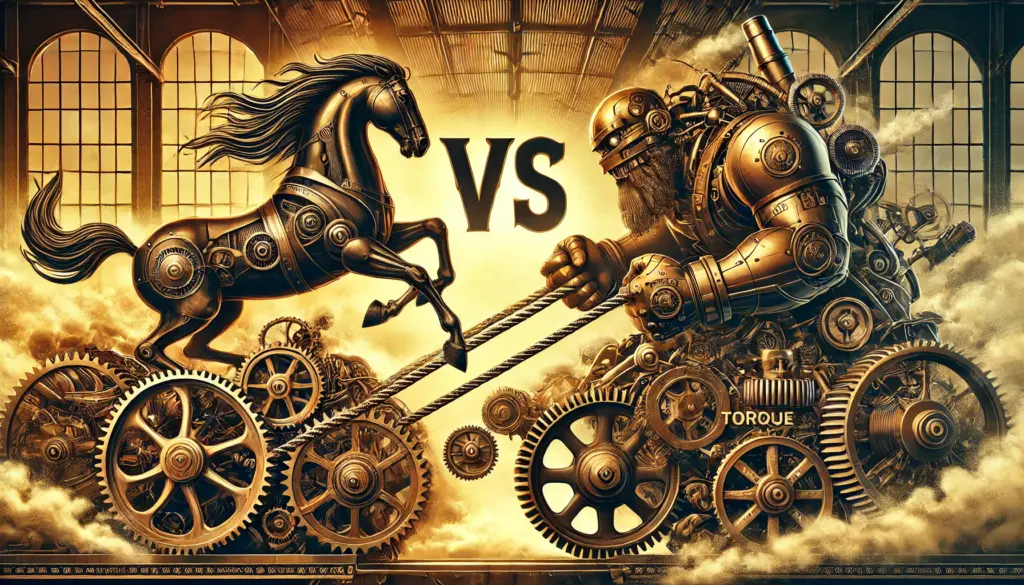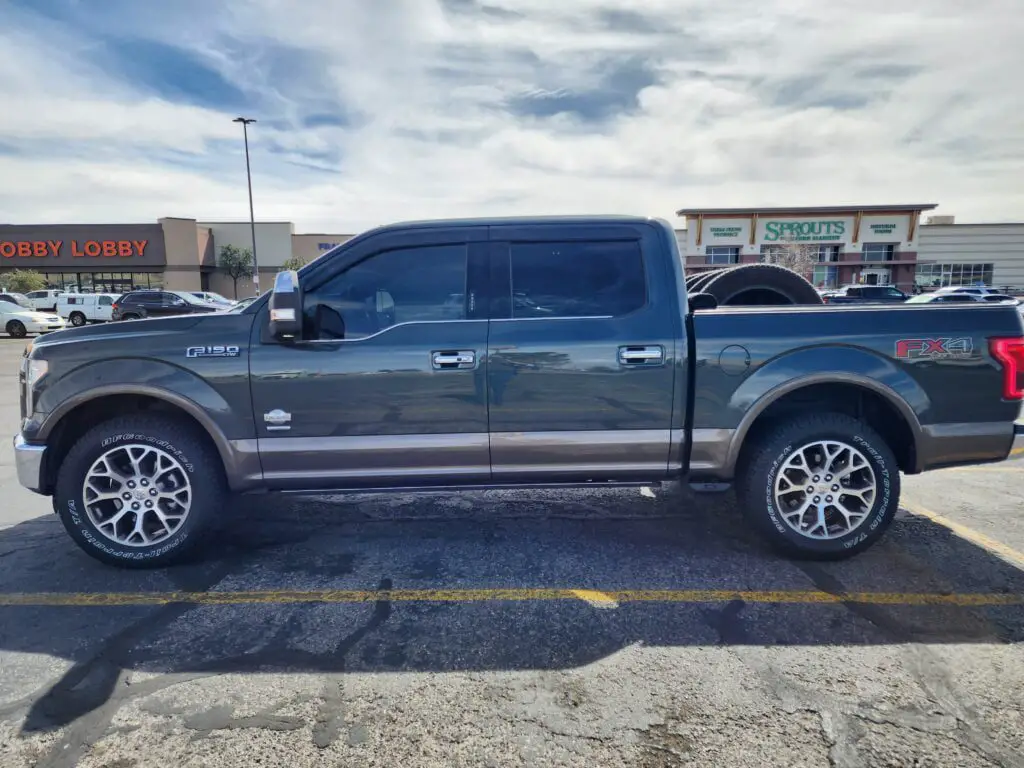
Horsepower vs. Torque: Understanding the Difference and How They Matter for Your Truck

When it comes to engines, two terms get tossed around a lot—horsepower and torque. You’ve probably heard them both in every conversation about engine performance, but what do they actually mean? And more importantly, how do they affect your Bullnose truck (or any vehicle for that matter)?
In this article, we’ll dive into what horsepower vs torque really is, how they work together, and when each one is more important. I’ll break it down into simple terms and even throw in a metaphor to help make sense of it all. By the end, you’ll have a clear understanding of how horsepower and torque affect your truck’s performance and which one to focus on depending on what you’re looking to do.
What Is Torque?
Let’s start with torque in this showdown because it’s the foundational force of an engine. Torque is essentially the rotational force that an engine generates. It’s what gets your vehicle moving from a standstill. Think of it like the “twisting power” of the engine—the force that makes your wheels turn and propels your vehicle forward.
Torque is measured in pound-feet (lb-ft). Imagine using a wrench to tighten a bolt. If you apply 10 pounds of force to the end of a 1-foot-long wrench, you’re applying 10 lb-ft of torque. The longer the wrench, the more torque you can apply with the same amount of force. In the context of an engine, torque is the force that’s being applied to the crankshaft to create movement.
Why Torque Matters:
- Towing & Hauling: Torque is the critical factor when it comes to towing or hauling heavy loads. When you’re pulling a trailer or climbing a steep hill, the amount of torque determines how much weight your truck can handle. More torque means more pulling power at lower engine speeds (RPMs), which is why trucks with high torque numbers are favored for towing.
- Acceleration: Torque also impacts how quickly your vehicle gets off the line. A truck with high torque at low RPMs will feel more powerful when you step on the gas, giving you that “seat-of-the-pants” feeling of immediate thrust.
What Is Horsepower?
Now, let’s move on to horsepower. While torque is about force, horsepower measures how quickly that force is applied. Horsepower is the rate at which an engine can perform work over time. It’s calculated using torque and engine RPM (revolutions per minute). So, if torque is the raw pulling power, horsepower is how fast that power can be delivered.
The formula for horsepower is:Horsepower=Torque×RPM5252Horsepower = \frac{{Torque \times RPM}}{5252}Horsepower=5252Torque×RPM
This means that horsepower is essentially torque multiplied by engine speed (RPM). The higher the RPM, the more horsepower an engine can produce from a given amount of torque.
Why Horsepower Matters:
- Top Speed: Horsepower is key when it comes to achieving higher speeds. The more horsepower your truck has, the faster it can go, especially at higher RPMs. This is why high-performance sports cars focus on horsepower—they’re designed to move fast, not necessarily to haul heavy loads.
- Maintaining Speed: Horsepower also helps in maintaining high speeds over long periods. If you’re cruising down the highway, the horsepower will dictate how smoothly and efficiently you can keep up speed without overworking the engine.
Torque vs. Horsepower: Which Is More Important?
This question depends entirely on what you’re looking to get out of your vehicle. Let’s break it down:
When Torque Matters Most:
- Towing and Hauling: If your truck’s main job is to pull heavy trailers, you want more torque. Torque allows your engine to produce strong pulling power at lower RPMs, which is exactly what you need when towing. In practical terms, a truck with 400 lb-ft of torque will pull a load up a steep incline easier than a truck with 300 lb-ft of torque, even if their horsepower numbers are similar.
- Off-Roading: Torque is your friend when you’re crawling over rocks or plowing through mud. In low-speed situations, torque provides the raw power needed to keep the wheels turning and prevent you from getting stuck.
- Low-Speed Acceleration: Trucks with high torque can accelerate quickly from a stop or at low speeds. For example, a diesel truck with more torque at low RPMs will feel stronger off the line compared to a gas truck with higher horsepower but less torque down low.
When Horsepower Matters Most:
- High-Speed Driving: If you’re after top speed or high-speed acceleration, horsepower is the key player. More horsepower means your engine can keep producing force as the RPMs climb, allowing you to go faster.
- Sustained Power: If you’re driving on the highway or at higher speeds for long periods, horsepower keeps your engine from working too hard. A truck with higher horsepower will cruise at higher speeds more efficiently.
- Performance and Racing: Sports cars and high-performance vehicles are designed with horsepower in mind because they need to generate high power at high speeds. If you’re building a truck for drag racing or top-end speed, you’ll want more horsepower.
The Relationship Between Horsepower and Torque
Here’s the thing—horsepower and torque are deeply interconnected. You can’t have horsepower without torque. Remember the formula I mentioned earlier: horsepower is a function of torque and RPM. So, if you have a lot of torque but the engine can’t rev high, your horsepower number will stay low. Conversely, if you have an engine that revs really high but lacks torque, you’ll still get a high horsepower number, but it might feel weak at lower speeds.
A Simple Metaphor to Understand the Relationship:
Think of torque as “pushing power” and horsepower as “sustained speed”. Imagine you’re riding a bicycle up a hill. The torque is how hard you push the pedals—it gives you the initial force to get moving and keep climbing. The horsepower is how fast you can pedal and how quickly you reach the top. You need both a good push (torque) and the ability to keep pedaling quickly (horsepower) to get to the top efficiently.
In a vehicle, torque gives you the initial “push” to move, and horsepower determines how fast you can keep going once you’re up to speed.
Examples in Different Types of Trucks
Diesel vs. Gas Engines
One classic comparison is between diesel and gasoline engines. Diesel engines are known for producing a lot more torque at lower RPMs, while gasoline engines tend to rev higher and produce more horsepower at the top end. This is why diesel trucks are often preferred for towing—they generate massive amounts of torque at low engine speeds, making them ideal for pulling heavy loads. Meanwhile, gasoline engines are more suited for speed and performance, as they can produce higher horsepower numbers at higher RPMs.
Example: Ford F-150

Let’s compare two F-150 models: one with a 3.5L EcoBoost V6 and another with the 5.0L V8. The EcoBoost produces more torque at low RPMs, making it better for towing and quick acceleration. However, the V8 produces more horsepower, making it better suited for high-speed driving and long highway cruises. If you’re using your truck for towing or off-roading, the EcoBoost’s torque advantage at lower RPMs is more valuable. But if you’re cruising or hitting high speeds, the V8’s horsepower will shine.
How to Choose Between Horsepower and Torque for Your Needs
So, which should you prioritize—horsepower or torque? Here’s a simple guide:
- If you tow, haul, or off-road frequently: Focus on torque. You need that pulling power and low-end grunt to move heavy loads and navigate tough terrain.
- If you prioritize speed, performance, or highway driving: Horsepower will be more important. It’ll give you faster acceleration at high speeds and help maintain higher RPMs without straining the engine.
Most trucks are built with a balance of both horsepower and torque, but knowing which one matters more for your specific needs can help you make better decisions when choosing engines, gear ratios, and modifications.
Conclusion
Understanding the difference between horsepower and torque can help you make smarter choices when it comes to your truck’s performance. Torque gets you moving and provides pulling power, while horsepower keeps you going fast. Depending on your driving style—whether you’re towing, off-roading, or chasing speed—knowing when to prioritize one over the other can make all the difference.
In the end, both horsepower and torque work together to get the job done. It’s about finding the right balance for your needs.

If you want more specific information on Bullnose Ford Trucks, check out my YouTube Channel!
For more information on Bullnose Fords, you can check out the BullnoseFord SubReddit or Gary’s Garagemahal. Both are excellent resources.